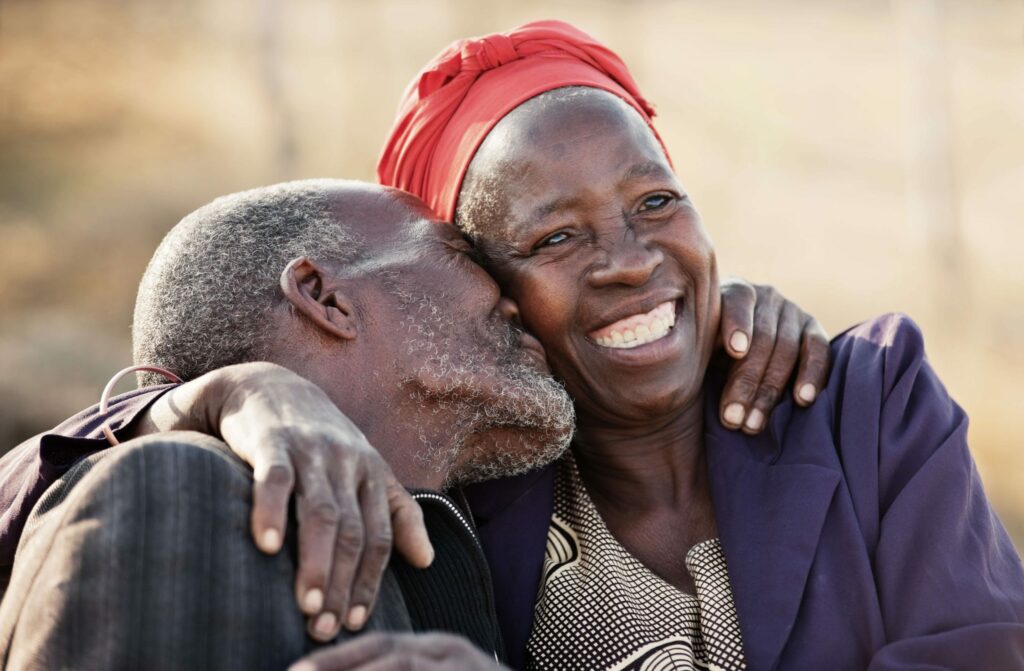Covid-19 was expected to ravage the unvaccinated populations of Central and West African countries as the pandemic began to rip through the continent. But something curious happened – or did not happen – which has left scientists baffled.
Counties such as Sierra Leone, with eight million people and where malaria, Ebola, TB, and HIV have caused such devastation, have registered very few cases and barely any covid deaths; 123 in total, with Kamakwie district having reported just 11 cases and no deaths since the pandemic began.
Why could this be? Have the sick simply not been counted? The Beta variant ravaged South Africa, as did Delta and Omicron, yet much of the rest of the continent did not report similar death tolls. A lack of consistent record keeping is relevant; and yet research has shown that about two thirds of the population in most Sub-Saharan countries do have antibodies to Sars-Cov-2 (78 percent in Sierra Leone) with only around 14 percent vaccination rates. This means most people will have been infected, but not have been unwell.
Diet and disease

There has been speculation that a younger average age could be playing a part (only three percent of people are 65 or older in Sub-Saharan Africa, as well as high temperatures, outdoor lifestyles, and limited public transportation infrastructure.
But in India, with similar amounts of young people and high temperatures, the Delta variant caused millions of deaths – far more than the 400,000 officially reported.
It seems that lower rates of chronic disease has also been an important factor in sparing the African sub-continent – in countries where dietary patterns are whole foods and predominantly plant-based, conditions such as diabetes, hypertension, and asthma are far less prevalent.
Surgeon Denis Burkitt who lived and worked in Uganda, was the first to discuss the “fiber hypothesis.”
He noted that middle-aged people (40-60 years old) had a much lower incidence of diseases that were common in similarly aged people living in England, including colon cancer, diverticulitis, appendicitis, hernias, varicose veins, diabetes, atherosclerosis, and asthma, all of which are associated with lifestyles commonly led in high-income countries.
Burkitt attributed these diseases to the small quantities of dietary fiber consumed in places like Europe and the US, due mainly to the over-processing of natural foods. Nowadays, dietary fiber intake is around 15 g/day, which is well below recommended amounts (30g/day) and the amount of 50g/day that Burkitt advocated for, which is associated with diets from rural, southern, and eastern sub-Saharan Africa.
Fiber deficiency
Since Burkitt’s death in 1993, his hypothesis has been verified and extended by large-scale epidemiological studies, which have reported that fiber deficiency increases the risk of colon, liver, and breast cancer and increases all cancer mortality and death from cardiovascular, infectious, and respiratory diseases, diabetes, and all non-cardiovascular, non-cancer causes.
Gut health and the microbiome is an area of research that has further verified Burkitt’s initial observations – we now know that products of fiber fermentation in the colon, called “short chain fatty acids” (SCFAs) suppress mucus excess, inflammation, and cancer risk in the gut.
SCFAs also have receptors outside of the gut which can affect our metabolism and reduce obesity, diabetes, atherosclerosis, allergy, and cancer.
A new approach
My hope is that moving into our third year of the pandemic, epidemiologists and public health physicians will be free to focus on ways to reduce mortality in Sub-Saharan Africa in ways that are most relevant to their biggest causes of mortality; through public health programs designed to combat malaria, HIV, TB, Ebola, and cancers that are linked to communicable diseases.

In the Western world, Covid-19 has brought us face to face with our vulnerability as a society. We have endured isolation and disruption and for many, long term illness and tragic deaths.
I believe the impact of Covid could have been reduced both by an effective vaccination program, and a collective focus from government, public health campaigns, and industry on making active and healthy lifestyle choices easier for everyone.
Access to healthy whole plant foods and green outdoor spaces without air pollution should not be a luxury, they are a necessity. We have a lot to learn from the experience of the African sub-continent with Covid, especially as factory farming practices globally leave us vulnerable to the next viral epidemic. Let us make changes now, to prioritize healthy plant foods and call for an end to factory farming. Before we have to live through another Covid-19.
This article was written by Dr. Gemma Newman of Orchard Surgery Medical Clinic, author of The Plant Power Doctor. Dr. Newman has worked in medicine for 17 years and is the Senior Partner at a family medical practice where she has worked for 12 years.






